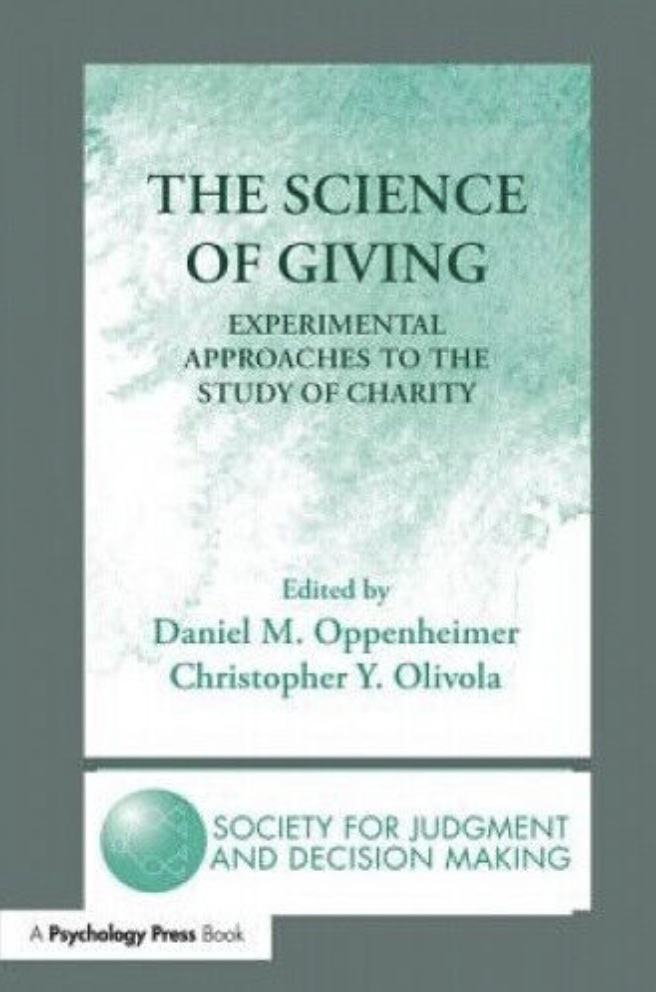The Science of Giving
In these experimental approaches to the study of charity the editors Oppenheimer and Olivola identify a range of factors that underpin giving, based on experimental methods.
It helps fundraisers examine the effectiveness of common fundraising strategies and includes recommendations on how to make capital campaigns more effective.
It also suggest new factors that influence giving. For example, many people choose to give more to a charity after undergoing an exhausting or painful effort.
While there is a practical element to the book the editors also examine the emotional, social and cognitive mechanisms involved in giving to charity.
For charitable organizations, this book examines the efficacy of fundraising strategies commonly used by nonprofits and makes concrete recommendations about how to make capital campaigns more efficient and effective. Moreover, a number of novel factors that influence giving are identified and explored, opening the door to exciting new avenues in fundraising.
For researchers, this book breaks novel theoretical ground in our understanding of how charitable decisions are made. While the chapters focus on applications to charity, the emotional, social, and cognitive mechanisms explored herein all have more general implications for the study of psychology and behavioral economics.
This book highlights some of the most intriguing, surprising, and enlightening experimental studies on the topic of donation behavior, opening up exciting pathways to cross-cutting the divide between theory and practice.
Published in The Society for Judgment and Decision Making Series.
New Money vs Old Money
The book was referenced in an episode of the Giving Thought podcast series by Rhodri Davies and Adam Pickering.



